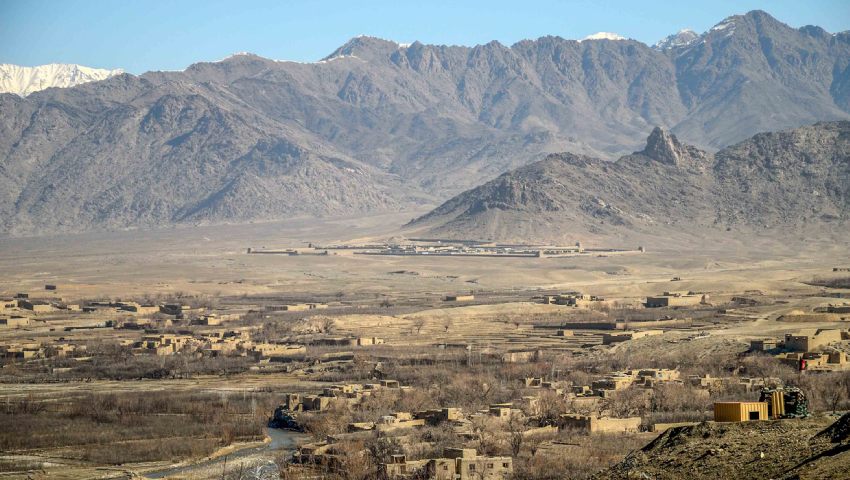Over recent weeks, governments from near and far have lined up to improve their relations with the new rulers of Afghanistan. While some paint the picture of a more moderate Taliban to justify their dialogue, others are under no such illusion.
While the West recoils in horror as the crisis in Afghanistan continues to unfold, many regional actors have sought to improve their relationships with the Taliban. While a constantly evolving situation, one thing is clear: Afghanistan is now under the control of the Taliban and despite small pockets of resistance, the Afghanistan project has ended. There is now an emboldened regional player – with international connections and decades of combat experience – sitting in the centre of one of the most contested regions on Earth.
Many regional actors justify their burgeoning relationship with the group suggesting that the Taliban is more “moderate”, and has learnt from the mistakes of the past. Indeed, the Taliban 2.0 has gone to great lengths to distance themselves from the Taliban of old. No more has this been evidenced than through their use of social media: from mujahedeen posting nuanced and Western-inspired memes in English to Twitter, or grinning photos of Taliban fighters with ice creams – it seems that many around the world may have fallen for these PR tactics.
Writing for Project Syndicate this week – a Czech run opinion news site funded partly by the Bill and Melinda Gates Foundation – former prime minister of Kyrgyzstan Djoomart Ortobaev opined that the world must back the moderate elements of the Taliban, and that the US must work with Russia and China to bring an end to the conflict.
“The Taliban are not a unified force, but rather a motley collection of groups with conflicting interests. There are significant differences between the 'civilised' political wing represented by the political office in Doha, influential clergy, and the numerous warlords on the ground. Afghans’ prospects depend crucially on which elements of the Taliban prove dominant. That is why it is essential to identify and support the more moderate Taliban leaders,” Ortobaev argued.
“Here, there might be good news. The latest information suggests that Taliban co-founder and political chief Mullah Abdul Ghani Baradar will become Afghanistan’s new leader. He has positioned himself as a pragmatic, experienced, and thoughtful leader, capable of uniting influential Taliban groupings around him and negotiating effectively with international actors.”
Indeed, these were a curious use of adjectives to describe a Taliban leader.
In a sign that the group has learnt from the PR mistakes of the past, the Taliban has vowed to ensure that extremist elements of the country’s jihadi movements do not seep from Afghanistan’s borders – a marked difference from the nation that hosted al-Qaeda.
“More broadly, central Asian countries seem to be cautiously optimistic about the potential for co-operation with a Taliban-led Afghanistan. After all, Baradar has pledged not to 'allow the emergence of a threat and danger from Afghanistan' to Central Asian countries, and has welcomed the Uzbek-initiated plan to construct the 'Kabul Corridor' railway from Termez in Uzbekistan to Peshawar in Pakistan via Mazar-i-Sharif and Kabul,” Ortobaev continued.
Aside from PR-posturing, what differences may there be from the Islamic Emirate of the 1990s?
Dr Isaac Kfir in his article 'The Taliban 2.0 – Learning from the past', posted in last week’s Defence Connect Insight, shines a spotlight on some changes that we might see in the Taliban’s grand-strategy: an improved governance structure, and a willingness to participate in an international financial network.
“It also seems that they learned from al-Qaeda’s experience and most importantly from the Islamic State (2014-2019). They know that winning a country and governing it are two different things. For the latter, they need legitimacy, money, and technocrats. This is why they recognise that once they negotiated the domestic pitfalls, deal with the opposition, and ensure that the international community accepts them, they can turn to their revolutionary foreign policy,” Kfir argues.
The Chinese government doesn’t seem to mind whether the Taliban is more moderate than the Islamic Emirate of the 1990s, which is seemingly the justification that many central Asian countries use to justify a relationship with the Taliban. Indeed, the Chinese government hosted a delegation of Taliban representatives before it was even clear what the outcome of the US-withdrawal would be, and before the Taliban’s PR machine kicked into overdrive.
Before 2001, only three countries recognised the Taliban controlled Islamic Emirate of Afghanistan: Pakistan, Saudi Arabia and the United Arab Emirates.
The number may grow far higher for the Taliban 2.0’s control.



